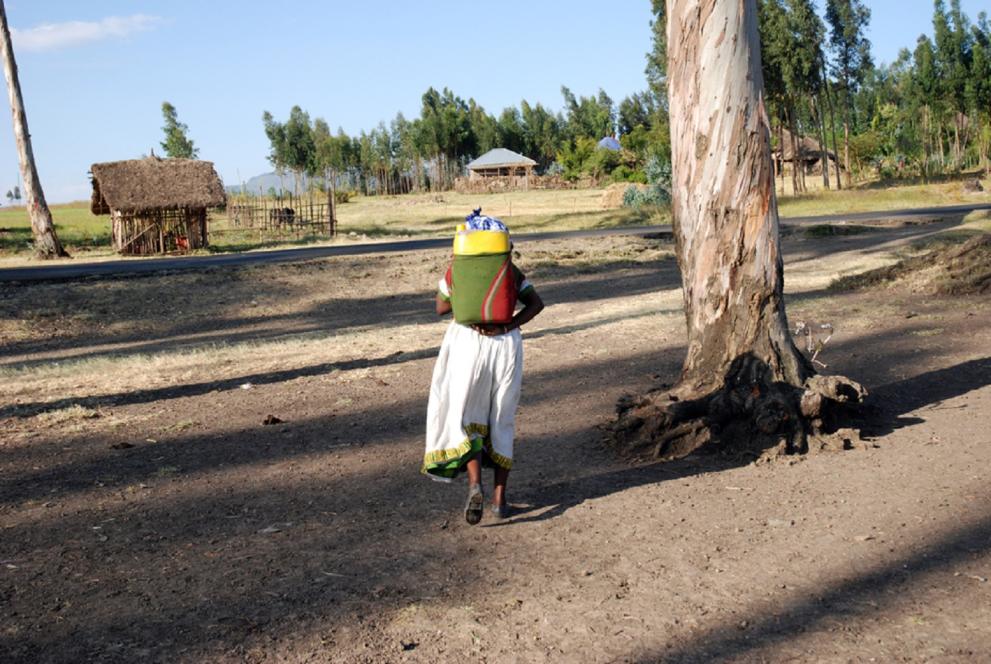
After successfully completing the annual planning process with its national partners at workshops in November and December 2020, the Better Migration Management (BMM) programme has started the new year equipped with an agreed operational plan for further activities to support safe and orderly migration in the Horn of Africa region. Planning workshops are held annually in the partner countries in order to adjust the programme activities to reflect progress and current conditions in each country. The framework of three interconnected components – migration governance, effective institutions to address trafficking and smuggling, and protection of vulnerable migrants – remains unchanged. Against the background of the COVID-19 pandemic, the workshops were partially held online. The pandemic also meant that some of last year’s programme activities had to be postponed and are now scheduled for 2021.
Further improvement of political frameworks and regional coordination for safe migration
One of the key aspects of migration governance that the programme supports in all partner countries is the establishment of national legal frameworks for safe and orderly migration. BMM in South Sudan, for instance, has already supported the drafting of a national migration policy. The programme will now facilitate the translation of this draft into a legal framework. In Sudan, BMM is focusing particularly on setting out a political framework for safe and regular labour migration from Ethiopia to curb the widespread problem that Ethiopian migrant workers have no legal status there. The process has already been initiated, with cross-border exchanges taking place between the two countries in previous years. In 2021, BMM will continue to promote both a national policy and a bilateral agreement with Ethiopia to this end.
To date, BMM has supported 16,800 representatives of state departments in the Horn of Africa in order to improve national migration policies and legislation and enhance the coordination of migration management in the region – both across borders and between relevant institutions. One example of how BMM strengthens interinstitutional coordination is the establishment of national committees in the partner countries that coordinate the implementation of migration-related measures across ministries. In Somalia, the BMM stakeholders agreed to hold further workshops and meetings to establish a working structure for the committee and familiarise members of the government with it.
Additional capacity building to counter migration-related crimes
To ensure compliance with legal frameworks, BMM will continue to strengthen the capacities of institutions enforcing them. Improving measures to combat trafficking and smuggling is a central concern in this regard, promoted, for example, through specialised training on investigation and prosecution. At the planning workshop in Kenya, plans for joint training courses for investigators, prosecutors and the judiciary were put in place for 2021. In Uganda, BMM’s work will include capacity building at the Uganda Human Rights Commission (UHRC) and civil society organisations (CSOs) on migrants’ human rights. Across all partner countries combined, BMM has so far implemented capacity-building measures for 5,470 state and non-state actors in the investigation and prosecution of human trafficking, integrated border management, and referral of migrants to services.
Improving services that assist and protect migrants
Improving services for migrant assistance and protection is the third pillar of BMM. 4,020 state and non-state representatives from the whole region have already participated in BMM activities to improve services for vulnerable migrants and victims of trafficking. The programme also aims to increase migrants’ access to services and information about their rights. BMM in Ethiopia focuses particularly on child migrants in this regard as they are in need of special protection. In 2021, BMM will promote training for relevant CSOs on referring child migrants to services that meet their needs and protect their interests. BMM in Eritrea will support the production of communication materials for a national awareness campaign on human trafficking and smuggling. In Djibouti, the programme will continue to support the establishment of information centres for migrants where they can obtain information on services and their rights and submit complaints on human rights violations.
Protecting migrants and their rights is the ultimate purpose of all BMM activities, whether in migration governance, establishing effective institutions to address trafficking and smuggling, or supporting direct protection and assistance services. All these measures are interconnected in the process of enabling safe migration. In 2021, BMM will continue to implement a variety of measures that benefit victims of trafficking and vulnerable migrants.
Background
BMM is financed by the European Union through the EU Trust Fund for Africa and the German Federal Ministry of Economic Cooperation and Development (BMZ). The second phase of the programme started in 2019 and focuses on consolidating a regional, holistic approach to migration management and on ensuring its sustainability beyond the duration of the programme.
Details
- Publication date
- 22 February 2021
- Region and Country
- Horn of Africa
- Thematic
- Improved migration management
- Partner
- GIZ
